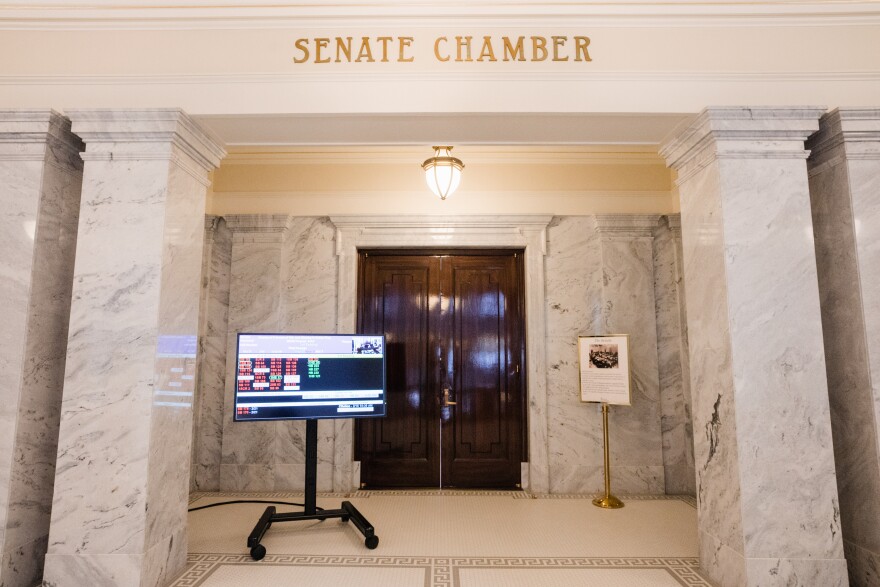The state laid out its vision for an inland port on a large swath of land on Salt Lake City’s west side, but the proposal is already getting pushback from city leaders.
Sen. Jerry Stevenson, R-Layton, introduced S.B. 234 on Tuesday, establishing the Utah Inland Port Authority to oversee the city’s largely undeveloped northwest quadrant. It would create a land-based port connecting planes, trains and trucks.
The authority would have land use and tax authority over an area totaling more than 24,000 acres, or 38 square miles.
“It is the largest economic development engine we will put together in the state of Utah,” Stevenson said. “Because it affects everything from supply to manufacturing. We not only bring material in here, but we have to have things that would leave through the inland port.”
City leaders have been wary of the state’s plans. And under the bill, the state would get four members on the nine-person port authority board — compared to the city’s three.
“We have negotiated with Salt Lake City,” said Stevenson. “I think we’ve come up with a fair process the way we’re looking at managing this. And I don’t think we interfere with what the city does.”
Mayor Jackie Biskupski and other city leaders strongly disagreed.
“Our ideas aren’t in the bill,” Biskupski said at a City Hall press conference Tuesday afternoon. “And there’s nothing about the bill that says that compromise is inside of it.”
She said bill would strip land use authority from the city and turn it over to a board that is not accountable to taxpayers.
Today state leaders released SB234 a bill that takes away the City’s Land use authority in the Northwest Quadrant. #utleg
— SLC Mayor Erin Mendenhall (@slcmayor) February 27, 2018
Biskuspki and City Council Chair Erin Mendenhall met with Stevenson earlier on Tuesday after the bill was made public. The mayor said Stevenson was receptive to their concerns and would make changes over the coming days.
The city council will also hold an special work session on Wednesday to discuss the legislation.
Stevenson said he's confident the bill will pass before the session ends March 9.
“The objective here isn’t to create a sandbox that only you can play in, but to create a big sandbox that works for everyone,” he said.
Editor's Note: This post has been corrected from a previous version. The bill would create a governing body with jurisdiction over 24,000 acres, not 3,000 acres.


